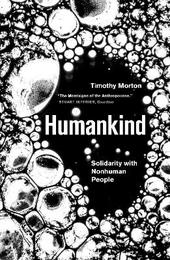
|
Humankind: Solidarity with Non-Human People
Paperback / softback
Main Details
Description
What is it that makes humans human? As science and technology challenge the boundaries between life and non-life, between organic and inorganic, this ancient question is more timely than ever. Acclaimed Object-Oriented philosopher Timothy Morton invites us to consider this philosophical issue as eminently political. In our relationship with non-humans, we decided the fate of our humanity. Becoming human, claims Morton, actually means creating a network of kindness and solidarity with non-human beings, in the name of a broader understanding of reality that both includes and overcomes the notion of species. Negotiating the politics of humanity is the first and crucial step to reclaim the upper scales of ecological coexistence, and not to let Monsanto and cryogenically suspended billionaires define them and own them.
Author Biography
Timothy Morton is Rita Shea Guffey Chair in English at Rice University. He is the author of Dark Ecology: For a Logic of Future Coexistence; Nothing: Three Inquiries in Buddhism; Hyperobjects: Philosophy and Ecology after the End of the World; The Ecological Thought; Ecology without Nature.
ReviewsI have been reading Timothy Morton's books for a while and I like them a lot. -- Bjork Considered by many to be among the top philosophers in the world, especially among those tackling issues related to human effects on our environment, Morton herein provides an important, spirited, and sometimes frenetic analysis of the foundational assumptions of Marxism and other -isms with regard to nature and culture. -- Jeff Vandermeer * The Millions * A very good introduction to what Theory (capital T) might have to say about climate change and species die-off. -- Ted Hamilton * LA Review of Books *
|